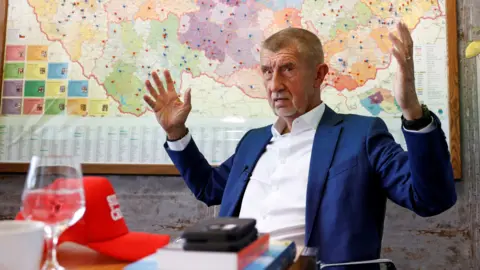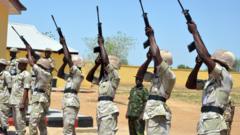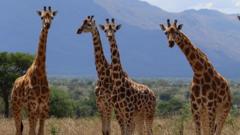In a surprising move, Cameroon's prominent opposition leader Maurice Kamto has been left off the list of candidates eligible to participate in the presidential election slated for October 12. This development comes ahead of a critical vote in which only 13 of the 83 candidates proposed were accepted by the country's electoral authority, Elecam. Kamto's disqualification, devoid of any explanation, marks another dramatic turn in Cameroon's already tense political arena.
President Paul Biya, the world's longest-serving leader at 92 years old, has been allowed to continue his campaign for an eighth consecutive term. Biya, who has held power for almost 43 years, has dismissed calls for his resignation, asserting that he still has much to contribute to the nation. The president is expected to face challenges from former allies Issa Tchiroma Bakary and Bello Bouba Maigari, both notable figures from the northern part of Cameroon, which is known for its substantial electoral influence.
Maurice Kamto, who previously ran under the Cameroon Renaissance Movement (CRM) banner in 2018, finished second in the last election amid allegations of electoral fraud. His party has since lost recognition, prompting Kamto to align with the Manidem party, which maintains local representation. Noteworthy candidates also in the running include renowned anti-corruption lawyer Akere Muna, Social Democratic Front's Joshua Osih, and the dynamic lawmaker Cabral Libii.
Additionally, the presidential race includes Patricia Tomaino Ndam Njoya, marking her as the sole female representative among the accepted candidates. Those candidates rejected from the presidential list have a two-day window to appeal the decision through the constitutional council, as sentiments among the populace grow increasingly complex. The electoral climate in Cameroon thus remains charged, with significant implications for its democratic processes.



















